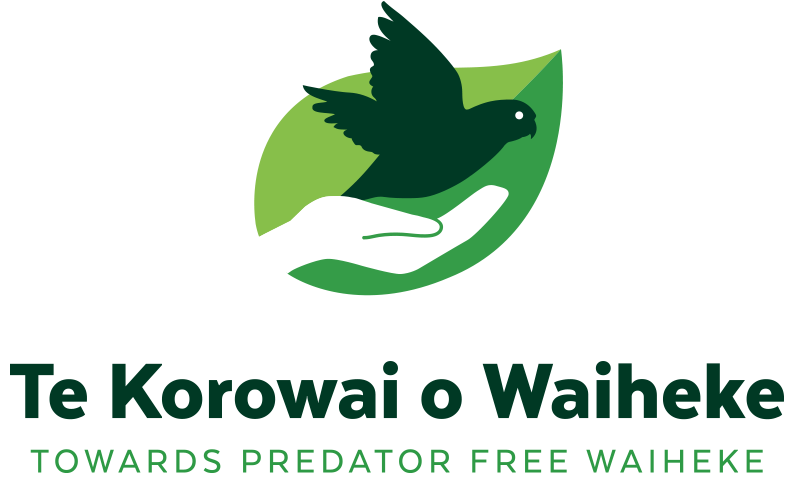The raucous parrots on the rise on Waiheke — Written by Te Korowai o Waiheke Team Member
A large kohekohe berry fell near my feet followed by a branch and then a strip of bark. High above, in the canopy, there was crashing and hopping and the shrieks of trill laughter. The beating of feathers echoed throughout the valley.
The kākā eased swiftly through the branches - the old taraire a leafy playground as they chased each other in flashes of red and grey. I watched as one sat with a branch of fruit, gripped in its hand like claw, meticulously either chewing each berry or throwing it to the ground. The starkness of the bright red chest and underwings showed as she ruffled and preened herself in a sliver of sunlight.
Kākā numbers on Waiheke are on the rise - their iconic calls can be heard all over the island in backyards and native bush. These raucous parrots aren’t just here, though, they’re spread across the country, with most of their populations concentrated on other offshore islands like Aotea, Te Hauturu-o-toi, and in Wellington due to the sanctuary of Zealandia.
Kākā are clever just like their southern cousins the kea. With large hooked beaks and big claws, they’re capable of stripping a precious fruit tree bare. These rare birds play an essential part in seed dispersal through our forests and they’re such a joy to watch - especially when they commandeer the backyard for the day. They did this at my place recently; they played for ages in the trees until suddenly there was a screech from the other side of the valley and they were off - in search of more forest to forage and frolic in. One stayed behind for a moment longer, though - she dawdled above my head as I quietly whistled. She peered around inquisitively and whistled back before taking off to chase down her group.
There aren’t many places where encounters like that are possible from the comfort of your home. To be sitting on my back deck watching seven kākā fooling around in their natural habitat, is the reward of all the hard work removing stoats that has been done here on Waiheke.
- Written and captured by Field Team Technician Charlie Thomas



